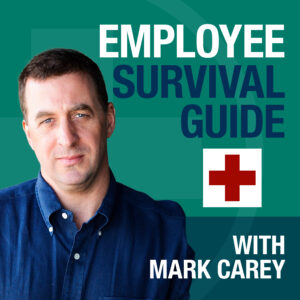By Mark Carey
The majority of employees in the workplace are women (56.8% according to the Bureau of Labor Statistics), and roughly half of them are at an age to experience perimenopause or menopause, according to a recent NYTimes Article on April 23, 2023. Employers need to do a better job for working women when it comes to accommodating the many intricacies of an often-perplexing transition. The topic of menopause is no more an extended taboo in the workplace.
Menopause occurs when a woman has not had her period for one full year. Yet, perimenopause (a lesser-known condition) can last anywhere from 5 to 10 years. During both times, estrogen levels take a significant dip, which can set off a whole host of symptoms, the most obvious being hot flashes, night sweats, and vaginal dryness. Yet, there are at least 30 well-documented and more obscure symptoms of the menopause transition, which many women may not be aware of, including migraines increased risk of heart disease, bone loss, increased anxiety, insomnia, and joint pain. Many women might not even associate these other symptoms with the menopause transition.
Legal Implication of Menopause in the Workplace
Do women have legal rights as far as accommodating menopause symptoms in the workplace? Right now, Menopause is not a condition granted rights under the American Disabilities Act. According to the Job Accommodation Network (a branch of the Department of Labor). According to the JAN, “when menopause occurs as a completely normal result of human aging, it is neither a physiological disorder nor a disability. Consequently, if a person does not have a disability, there is no obligation to accommodate under the ADA. However, employers are free to accommodate employees even when they do not have a disability.” In my opinion, the Job Accommodation Network has fallen behind the times and the above information is not technically or legally accurate.
Fortunately, there is a growing body of court decisions that have held that the underlying medical complications experienced by women included in the generalized term “menopause” are in fact covered as physical and mental disabilities. These disabilities must be documented by employees with their employers by using letters from treating medical personnel to the employers, in turn, employees must request reasonable accommodations.
What Ways Can Employers Help Accommodate Women in Menopause?
Considering that the symptoms of menopause can, at the very least, be bothersome, and at the most, be debilitating, employers would be smart to help accommodate this ever-growing population of their workforce. Here are five things to consider when it comes to making accommodations for menopause in the workplace:
There Are Anti-Discrimination Laws
Consider that in many countries, menopause, a natural biological process, is protected under anti-discrimination laws that prohibit discrimination based on sex, gender, or age. Employers are typically forbidden from treating women unfavorably or creating a hostile work environment due to menopause-related issues.
- You May Qualify for Reasonable Accommodations
While menopause alone may not meet the criteria for disability protection, certain menopause-related conditions or symptoms, such as severe hot flashes, migraines, or depression, could potentially qualify if they substantially limit major life activities. Employers may be obligated to provide adjustments, such as flexible work hours, changes to the work environment, or modified duties, to help women manage their symptoms effectively.
- Can You Take Medical Leave and Sick Days?
Menopause-related symptoms may occasionally require women to take medical leave (FMLA leave) or sick days. Employment laws or company policies regarding medical leave, sick leave, or disability should be reviewed to ensure that menopause-related conditions are appropriately addressed and protected.
- Health, Wellness, and Safety Regulations
Menopause symptoms like hot flashes and temperature sensitivity may require adjustments to the work environment to ensure the health and safety of women experiencing these symptoms. Adequate ventilation, access to cooling mechanisms, or modifications to dress codes to accommodate temperature regulation needs may be necessary.
- Considerations of Privacy and Confidentiality
Menopause is a personal and private matter. Employers should respect the privacy and confidentiality of women experiencing menopause and ensure that sensitive medical information is handled appropriately, adhering to relevant privacy laws and regulations.
It’s essential for employees to consult with an employment attorney to gain a comprehensive understanding of the specific legal requirements and obligations related to menopause in the workplace within their jurisdiction. Please contact Carey & Associates, P.C. on our website or call us at (203) 255-4150 or by email at info@capclaw.com.
Employee Survival Guide Podcast- Listen Here

